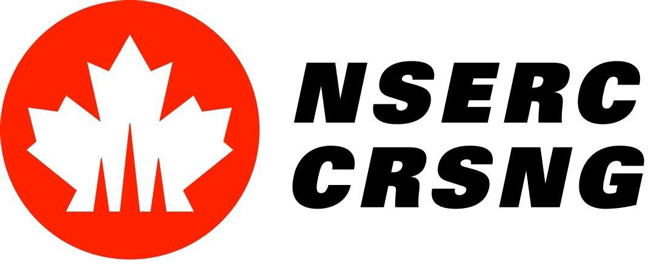What do geological faults, musical communication and neuroimaging computer platforms have in common? All three are among the research subjects that benefitted from the latest round of grants announced by the Natural Sciences and Engineering Research Council (NSERC).
The Honorable Kirsty Duncan, Minister of Science, announced the 2016 results of the NSERC Discovery research grants program at McMaster University on June 24. “Today’s investment will allow many of Canada’s scientists and engineers to explore the frontiers of knowledge where they can make exciting new discoveries,” said Minister Duncan. “Our government is committed to investing in these future research leaders and in the cutting-edge ideas that will lead Canada to social and economic growth for a better tomorrow.”
The announcement included 2016 competition results for NSERC’s Discovery Grants, Discovery Accelerator Supplements, Discovery Development Grants, Alexander Graham Bell Canada Graduate Scholarships, Postgraduate Scholarships, Postdoctoral Fellowships and Research Tools and Instruments Grants. In this year’s round of grants, NSERC is investing over $465 million for over 4,000 long-term research projects in science and engineering across Canada.
McGill’s total NSERC funding granted in this round, which will be dispersed over the next five years, is $30,021,404. This is an increase over last year’s announcement, which granted McGill a five-year commitment of approximately $27 million.
“The ambitious work of McGill’s researchers and students has once again been propelled forward by this recognition from NSERC’s Discovery Grants Program,” said Rosie Goldstein, Vice-Principal (Research and Innovation). “Thanks to significant federal investment such as these, McGill is generating transformative new developments across most disciplines, from new technology in neuroimaging to new methods for measuring the strength of geological faults. Discovery Grant applications from McGill researchers had a 72 per cent success rate, which is six points above the national rate. Congratulations to all of our researchers whose work benefitted from this round of grants.”
For the second consecutive year, McGill secured third place among the U15 with seven per cent of the market share of grant funding, behind University of Toronto (10 per cent) and UBC (eight per cent). In 2014, McGill improved from fourth place to third in national market share. McGill remained first among Quebec Universities, with a market share 23 per cent higher than the second-place awardee, Université de Montréal.
This year, five McGill researchers were awarded Discovery Accelerator Supplements, which provide funding above and beyond a standard NSERC grant to maximize the potential impact and timeliness of exceptional research projects. Each Accelerator Supplement is valued at a total of $120,000, and is dispersed over three years.
Recipients of the Accelerator Supplements are:
Dr. Subhasis Ghoshal, Department of Civil Engineering, Faculty of Engineering: Physical and Chemical Transformations of Engineered Nanoparticles: Implications for Environmental Fate in Aquatic Environments
Anne-Marie Kietzig, Department of Chemical Engineering, Faculty of Engineering: Laser-assisted fabrication and stability of superomniphobic surfaces
Aditya Mahajan, Department of Electrical and Computer Engineering, Faculty of Engineering: Decentralized stochastic control: information structures, communication, and learning
Valérie Orsat, Department of Bioresource Engineering, Faculty of Agricultural and Environmental Sciences: Functional ingredients for a healthy food industry
David Stellwagen, Department of Neurology and Neurosurgery, Faculty of Medicine: Glial regulation of synaptic plasticity

